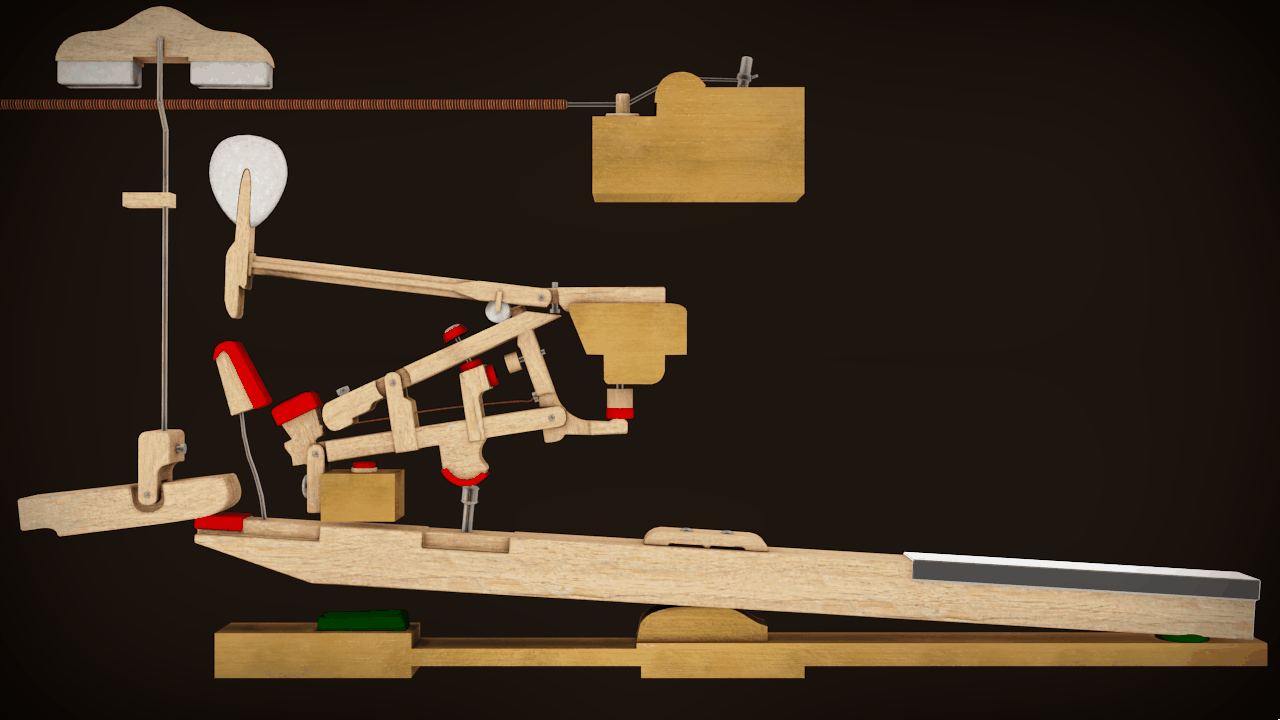WEIGHTED PIANO KEYS: WHY THEY ARE IMPORTANT FOR A BEGINNER.

By Daz Thornton at The Piano Vault
When I interview a prospective pupil, it frequently turns out that they don't currently own an acoustic or digital piano. They may have a keyboard, which is better than nothing, but, not really ideal for developing a good piano playing skills.
One of the questions that they ask is "what do you recommend as an instrument to get me started?" Many beginners / beginner's parents in the initial stages of learning are not always willing or able to invest in an instrument that will take them beyond the beginner standard of playing. With this in mind, it is important that I recommend an instrument that is affordable enough for them to decide whether piano playing is for them or not, but more importantly, it needs to be something that will help the pupil experience something of the feel and touch of an acoustic piano. This is where full size weighed keys are an important consideration.
WHAT ARE WEIGHTED KEYS?

Weighted keys are a feature that digital pianos (and some keyboards/portable pianos) include in their design to help mimic the action of an acoustic piano. You can see from the example above that by pressing a key on an acoustic grand piano, a series of mechanical parts are set into motion with the aim of throwing a hammer at the string(s). This creates the familiar sound of a piano and provides a pianist with the level of control that is required to produce an array of expressive possibilities.
WHY ARE WEIGHTED KEYS BETTER FOR BEGINNERS THAN THOSE OF A KEYBOARD?
Weighted keys will bring the beginner pianist closer to that of an acoustic piano, helping them feel the sensitivity required to push down the keys with different levels of control, as opposed to those on most keyboards that are unweighted. Unweighted keys do not provide the resistance that is needed to develop piano playing skills.
To make a good start in developing their piano technique, the learner needs to feel that they are pushing against they key to play a note, and also experience the sensation of the key pushing back up when returning to its resting position. On a larger scale, this is a little like the sensation of being sat on one end of a seesaw.
The unweighted keys that you get on many keyboards, don't provide this sensation, and will result in a pupil practising on an instrument that doesn't resemble the key resistance of an acoustic piano. This often presents them with quite a shock when they start to play for their teacher on a weighted action for instance. The evenness of their playing can be affected due to their fingers not building up the strength to move from one key to another, which in turn will also affect the dynamic level and tone they produce from the instrument.
WHAT SORT OF PIANO WOULD BE GOOD FOR A BEGINNER ON A BUDGET?
For beginners who are on a budget, and/or may be limited for space, they may like to consider an instrument that is portable like a keyboard, but includes the type of weighted action that has been spoken about above.
Many manufacturers offer a beginner 'entry range' of portable, weighted keyed instruments that provide a good basis for building a piano technique. One such instrument (at a very affordable price I might add) is the Casio CDP-S90. See the short video below for an overview:
Casio have also gone to the trouble of designing these weighted keys to have a textured finish, rather than the slippery shiny plastic feel that is often used on keyboards. This adds a feeling of quality to the keys, which is great for an entry level product, as well as providing an element of grip whilst playing.
Whilst trying out this instrument, I asked a young pupil of mine (who currently owns an unweighted keyboard) what her first impressions were of these weighted keys. She answered by saying that the keys on her keyboard were "easier to push down". I then explained to her mother that she shouldn't be fooled by her usage of the word "easy". Just because there is very little resistance when pushing down on an unweighted keyboard, it doesn't mean that it will be of any benefit to her playing or in developing a good sense of control at the piano. In other words, don't associate the word 'easy' with the word 'beneficial' It would be like going to the gym and handing someone a really light dumbbell. They may be "easy" to lift, but that is not going to help in developing muscles. It is the weight and the resistance of the keys on an instrument like the Casio CDP-S90 that will help a beginner develop the finger control they need as a piano player.
WHAT TO TAKE AWAY
It may be tempting as a beginner to go for a cheaper keyboard over something a little more substantial in the early stages of learning. What usually ends up happening though, is that a player will soon need to upgrade to an instrument that will take them further than a simple keyboard with unweighted keys can achieve. With this being the case, I would advise that you invest a little more in providing something that offers what they need to start them on their musical journey from the very start of their piano lessons, for all the reasons I have listed above.
A portable beginners piano such as the Casio CDP-S90 would be a good choice here, and, will not break the bank at approx £325. Just for the key action alone, this price is fantastic!
Find out more about the Casio CDP-S90 here:






Comments